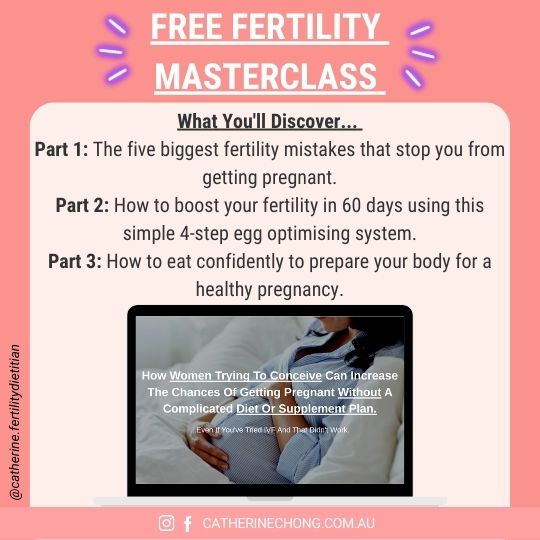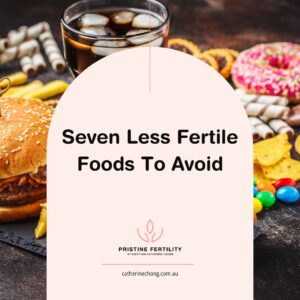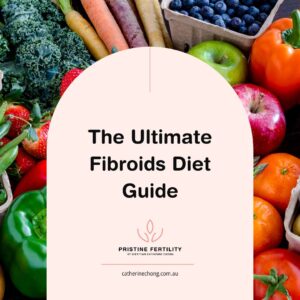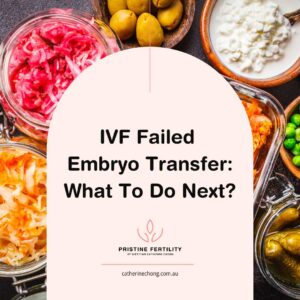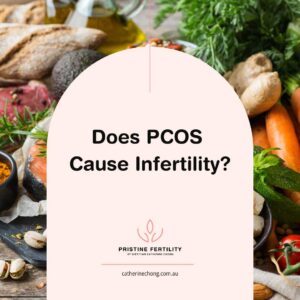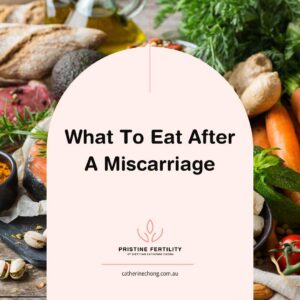Discover How Your Diet Influences Fertility: The Role of a Fertility Diet
We all know diet is important, but did you realise it could play a starring role in your journey to parenthood? The foods you enjoy can be your ally in boosting fertility or a stumbling block keeping you from conceiving.
Extensive research suggests that adopting a healthy fertility diet can significantly increase your likelihood of falling pregnant, especially if you’re undergoing assisted reproductive treatments such as IVF.
In this guide, I will walk you through the essential top seven tips to prepare you for pregnancy, showcasing foods that are fertility’s best friends and calling out the ones that could slow your progress.
First, let’s focus on the foods you should limit or exclude from your diet due to their potential detriments to fertility.
1. The Hidden Pitfalls of Sugar-Loaded Foods and Beverages
The typical Western diet, laden with heavily processed foods and sugar-rich beverages, can pose a serious threat to fertility health. For men, it’s been demonstrated that such dietary choices can diminish fertility by reducing sperm concentration and hampering sperm motility. Women aren’t exempt from the impact either. A notable study revealed that consuming sugar-infused carbonated drinks correlates with a reduction in mature oocytes, fertilised oocytes, and quality embryos.
2. The Illusion of Health: Artificial Sweeteners
You’ll find artificial sweeteners starring in many ‘diet’ or ‘low-sugar’ soft drinks, often marketed as healthier substitutes. Alongside other lifestyle factors and nutritional habits, like cigarette smoking and alcohol consumption, artificial sweeteners have been associated with oocyte abnormalities and negatively associated with the response to ovarian stimulation and embryo development. Furthermore, daily consumption of artificially sweetened beverages has been associated with an increased risk of preterm delivery.
3. Treading Carefully with Caffeine
Studies have revealed a connection between caffeine consumption and unfavourable pregnancy outcomes in recent years. While the debate around avoiding caffeine is ongoing, Australian guidelines suggest that pregnant women and those trying to conceive should limit their caffeine intake to no more than 200mg daily, equivalent to approximately two cups of coffee.
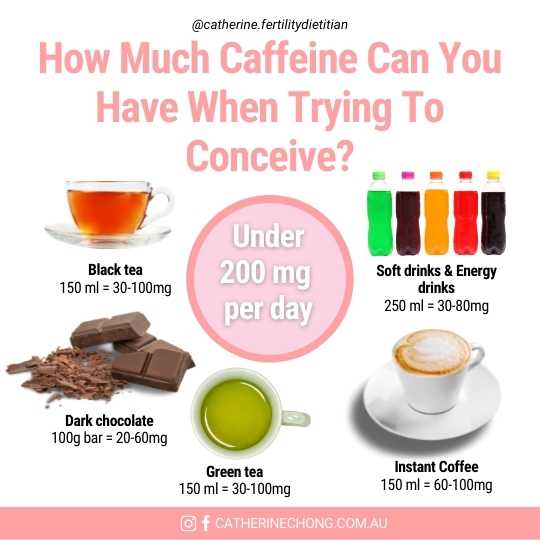
4. Alcohol: The Unseen Threat to Fertility
The harmful effects of alcohol consumption on both male and female fertility are well-documented. For men, heavy alcohol intake can wreak havoc on sperm count, motility, concentration, and even shape. For women, alcohol’s reach extends to disrupting ovulation and menstrual cycles, escalating the risk of anovulation and miscarriage, and possibly decreasing the success rates of infertility treatments.
A recent meta-analysis study looked at nearly 100,000 women and found that even women who only had a little alcohol daily found it harder to conceive. It didn’t matter what type of alcohol they drank, whether wine, beer, or spirits. The more alcohol they drank, the harder it was to get pregnant. This was the first study to show that drinking alcohol can make it harder for women to get pregnant.
5. A Watchful Eye on Saturated and Trans Fats
For men, a diet rich in saturated and trans fats might be a shortcut to reduced semen quality and concentration. Women aren’t immune to the effects either. Saturated fats can have detrimental effects on several stages of the reproductive process, from egg development and quality to fertilisation and the success of embryo implantation.
6. BPA and Plastics: A Hidden Hormonal Disruptor
Bisphenol A (BPA), a common ingredient in many plastic products, can wreak havoc on a woman’s reproductive hormone balance. It can lead to irregular menstrual cycles and impaired fertility and negatively affect assisted reproductive treatment outcomes.
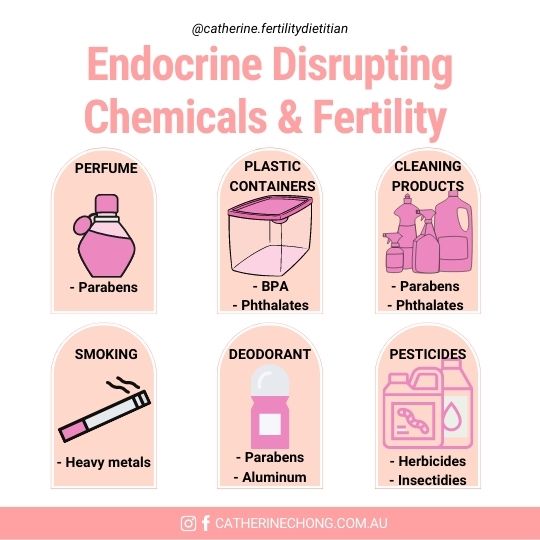
7. The Mediterranean Diet: A Feast for Fertility
Now that we’ve covered what to avoid let’s dive into the foods that can boost your fertility!
The Mediterranean diet takes the crown as the best fertility-enhancing diet. It champions the consumption of wholesome foods like fruits, vegetables, legumes, whole grains, low-fat dairy, seafood, and poultry while encouraging us to eat less red meat, refined grains, and processed foods.
This diet isn’t just a hit with food lovers – it has robust scientific backing, too. Thanks to its anti-inflammatory and antioxidative benefits, the Mediterranean diet has been linked to increased fertility in women and enhanced semen quality in men.
And the good news doesn’t stop at conception. Sticking to this diet can also lower the risk of pregnancy complications such as gestational diabetes and preeclampsia.
Bottom Line:
- Start by rethinking what’s on your plate. Think less processed foods, sugars, and unhealthy fats.
- Stay committed to Mediterranean-style eating to enhance overall fertility health.
- Take action against lifestyle and environmental factors, such as alcohol and BPA, that can hinder fertility.
Need More Help?
Are you seeking additional support and guidance in optimising your fertility through a personalised nutrition plan?
Schedule a nutrition consultation today and take the first step towards achieving your fertility goals.
You May Also Be Interested In
Disclaimer: Content on this website is provided for information purposes only and should not be replaced with medical advice. We recommend you discuss with your healthcare providers (doctor, dietitian, pharmacist, etc.) any medical questions for diagnosis and treatment, dietary plan, or use of any medications and nutritional supplements before you make any changes. DietitianChong Pty Ltd shall not bear any liability for reliance by any user on the materials contained on this website.

